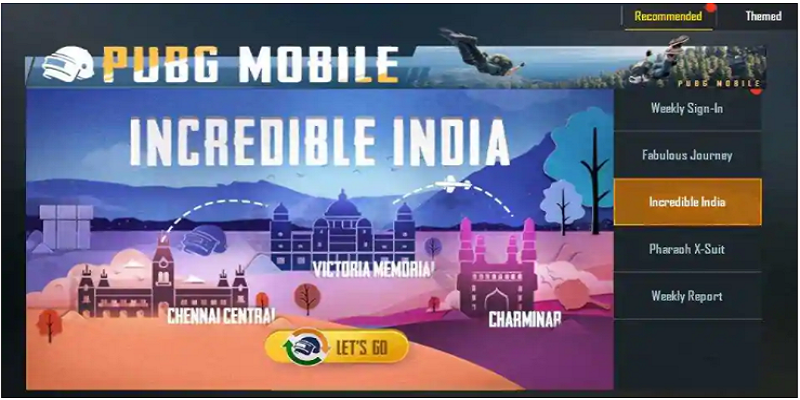
With the Covid-19 induced restrictions, Indians are gulping down digital like never in an effort to keep themselves occupied in these trying times.
Gaming being one of the reigning digital pastimes has seen an exponential rise in consumption since the beginning of lockdown. As July 2020 Statista report ‘India had about 201 million users of mobile games across the country in 2016. This was projected to reach about 370 million users by the year 2022, marking a considerable increase in the number of users. Overall, Indians preferred to use mobile games than a computer or console games.”
However, on the other side of the popularity of mobile gaming lies the challenge associated with the retention value of the game and return on investment (ROI).
The popularity of mobile games over PC and console gaming has had its own set of challenges. Since mobile devices can be easily accessible anywhere and anytime, people tend to get bored with mobile gaming content faster after a certain period of time. This results low in retention value and low income. Here are the factors which are responsible for low retention and suffered ROI in gaming business:
- No time to strategise: Game development and game publishing are tough tasks. Lack of time to strategize the targeted audience according to the demographics for the game before the launch may bring loss.
Audience from different states and countries have different tastes for content and it is very crucial for the creator to promote the content according to the target. Either the creator incorporates regional qualities to make it relatable to that particular region or by adding neutral relatable elements that will cater to all irrespective of region. For example, popular battle royal game PUBG Mobile incorporated India’s Independence day special content to engage more Indian users in the country.

- Timely updates: Expecting that people will continue to play the same mode forever is wrong.
Launching a game means a developer taking a plunge in the midst of a tremendous responsibility to feed the audience with fresh new in-game content. If one fails to keep the gamers hooked with new updates, the maximum device life of a game will be two to three months.
Taking example Call of Duty : Mobile launch game continues to update almost every month since pandemic lockdown started. And the new updates include in the form of- battle pass, new game modes, weapons, crates, characters, and even in-game comic books. From personal experience, I have spent more than Rs 10,000 for in-game items in lockdown because the items were quite appealing. This way, not just the game is able to engage the audience but also get to earn income by selling premium items.
- Incorporation of additional features: It is very important that the game should include features that only make it interactive but will also allow us to engage with other co-players in fun ways. This includes the incorporation of voice chats (PUBG Mobile, Fortnite, and others ), videochat ( Houseparty and others). It is not necessary that a developer should always wait for the right time to add new features to its game, in fact they may launch their game with added features.
Gametion Technology, creator of popular digital board game LUDO King has recently incorporated live voice chat facility and e-greetings feature in their game. They have realised and identified that during lockdown, the audience was inclined towards communicating with other co-players and games with the added virtual socialising feature have been downloaded more in the lockdown period according to a BARC report.
- Promotional campaignes: A promotional campaign always gives newness to the existing content. For example few days back Games24x7, unveiled a digital influencer campaign for its skill gaming platform, RummyCircle to deepen the connection between the game’s platform and players of the card game: rummy, across different parts of the country partnered with Bollywood artists, Aparshakti Khurana, Varun Sharma, Vir Das, and Manjot Singh for the campaign in the North Indian market. In the same spirit, the company has also associated with artists Danish Sait and Sathish Muthukrishnan for Karnataka and Tamil Nadu regions. The incorporation of know faces in the brand makes it more relatable to the audience of the respected region and thus the engagement gets spiked after it. Some audiences will even download and play the game just because their favourite star has done the promotion.
- Online tutorial of the gameplay: It is very important to engage your audience outside your game so that the audience could constantly connect with the brand. Especially microblogging sites or video streaming sites become helpful to share time to time update. Not only that, if the game is skill-based; a brand may also share tutorials to hone the skill set required to play the game. For example: Rummy Circle a few days back, had partnered with actress and TV presenter Mandira Bedi to release a series of tutorial videos on rummy, to help players master their skills.
To create the engagement in gaming, companies are spending a lot of their liquids and moolahs. Some are even switching to options such as discounts to grow their user base and maximise their revenues. However, one has to be very careful about their LTV-CAC ratio (3:1) which means the value of a customer should be three times more than the cost of acquiring them. If the ratio is close to.1:1, the brand is spending too much and if it’s 5:1, the brand is spending too little. “Discounts can give you a fillip, however, they are not going to help you in creating your LTV-CAC ratio,” said Nazara Technologies CEO Manish Agarwal at the FE India gaming summit.
It is very crucial for a brand to identify the need gap between consumer demands and market offerings as well as to have an understanding of the competitors to fill in the product gaps. If the demand is sufficed by other existing brands, then there will be no place for the second business to fulfill the same need. Sometimes reviews on the app store or microblogging sites help brands to understand the market to work on the specific project.
For example when COVID 19 lockdown started and all sporting events got canceled and fantasy sports platforms were affected badly, and at the same time gaming and esports platform started booming. Profeud co-founder Robin Dhar launched the fantasy esports platform in India. Dhar figured out there is demand in the fantasy game space and launched its platform which falls under skill-based fantasy game but it requires knowledge in gaming and not sports.
The more we listen, research and talk to the audience, the more we will get a clear picture of the collective demand and the nuances of the market. Getting a firmer grasp over the ebbs and flows of the market further help in engagement, retention, ROI on the platform.

